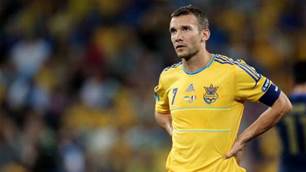FROM Gazza's infamous celebration against Scotland to Marco van Basten magical goal, we look at the nest moments from the European Championship.
10 - France's Greek tragedy
Having upset hosts Portugal in the opening game of Euro 2004, Greece sneaked into the last eight at the expense of Spain on goals scored. Few, though, gave Otto Rehhagel’s side even the slightest chance of progressing past France in the quarter-finals. However, as the game progressed it became clear the disjointed reigning champions were there for the taking. The goal with which Greece caused one of the biggest shocks in Euro history was a thing of beauty.
With 64 minutes gone, Theo Zagorakis, flicked the ball past Bixente Lizarazu before controlling, setting himself and then picking out an unmarked Angelos Charisteas, who beat Fabien Barthez all ends up with the most wonderfully precise bullet header. The rest, as they say, is history, with Greece going on to lift the trophy with a second tournament success over the shell-shocked Portuguese.
9 - Amoros loses his head
There are senseless sendings-off and then there is Manuel Amoros' dismissal at Euro '84. France were 1-0 up in their opener against Denmark when their right-back was taken down by Jesper Olsen. The then Ajax winger initially appeared to have made a genuine attempt to play the ball but it was the perceived follow-through which enraged Amoros – well, that’s our best guess anyway, because the defender's reaction was so over the top it has to be seen to be believed.
Amoros first tried to bounce the ball off Olsen’s head and having failed dismally to do so, he then decided
head-butt the Dane – right in front of the referee. To top it all off, Amoros actually had the temerity to dispute the inevitable red card which followed. Still, he did manage to return in time to feature as a substitute in the final.
8 - Bierhoff's Golden Goal
It was by no means pretty but Oliver Bierhoff's second goal in Germany's 2-1 victory over Czech Republic in the final of Euro '96 was undeniably significant. The Udinese striker had forced extra-time by cancelling out a Patrik
Berger penalty and he struck again in the 95th minute to register the first 'Golden Goal' ever to decide a major
tournament. After gathering a long punt forward, Jurgen Klinsmann swung the ball hopefully into the area. Bierhoff did wonderfully well to control the ball under pressure before engineering some space for himself and unleashing a shot which took a deflection off Michal Hornak and somehow managed to squirm its way past a hapless Petr Kouba in the Czech goal. People often talk about a goal worthy of winning any game. This was not one of those goals.
7 - No happy ending
Denmark’s Euro ’92 campaign was a story of tragedy and triumph. Richard Moller Nielsen’s side had only secured entry at the eleventh hour because of the outbreak of war in Yugoslavia, while midfielder Kim Vilfort went into the tournament knowing that his seven-year-old daughter was fighting a battle with leukaemia that she would not win.
Twice the Brondby midfielder decided to pull out and twice he was persuaded by his family to continue playing. After missing the Danes’ final group game against France to be at his little girl’s bedside, Vilfort returned for the semi-final shoot-out success over Netherlands before again being urged to participate in the tournament decider against Germany. Consequently, Vilfort’s title-clinching goal in Gothenburg remains the most poignant moment in Euro history. However, while Denmark’s victory in Sweden is often described as a fairytale, ultimately there was to be no happy ending as Vilfort’s daughter passed away soon after.
6 - Fortune favours the Blues
Pundits and players alike often bemoan the lottery-like nature of penalty shoot-outs. It is undeniably a cruel way to exit a tournament but then, at least there is a pretty large element of skill involved. The same cannot be said
of a coin toss. This, however, was how drawn games were sometimes decided in years gone by.
The most famous example is, of course, Italy’s ‘victory’ over the Soviet Union in the semi-finals of Euro '68. The two sides had failed to produce a single goal after 120 minutes of play at the San Paolo in Naples, forcing referee Kurt Tschenscher to go to his pocket. The Soviets’ skipper, Albert Shesternyov, called incorrectly and the delighted and relieved Azzurri went on to defeat Yugoslavia in the final - albeit only after a replay.
5 - Sombreros and alcohol
Having been slated by the press for his role in a Dentist's chair-based drinking session in the run-up to England's Euro '96 campaign on home soil, Paul Gascoigne responded in predictably headline-grabbing fashion in his country's group stage clash with Scotland at Wembley.
With the hosts struggling to hold on to a 1-0 lead in their group clash with Scotland, he ran onto a pass from Darren Anderton, lobbed the ball over Colin Hendry with his left foot and then volleyed it past Andy Goram first time with his right foot. Gascoigne then rushed behind the goal and lay down on the turf as he waited for his onrushing team-mates to squirt the contents of a nearby water bottle into his open mouth.
4 - Netherlands pays the penalty
Peter Schmeichel had been a Manchester United player for just under a year by the time Euro '92 rolled around but it was only during the tournament that the giant goalkeeper truly became a household name and it was one moment in particular which set him on the road to international stardom.
Surprise semi-finalists Denmark had gone desperately close to eliminating pre-tournament favourites Netherlands in normal time only to be denied by an 86th-minute equaliser from Frank Rijkaard. The game eventually went to penalties, where it it was thought that the reigning champions' greater experience would win out. However, the Dutch were ultimately let down by, of all people, star forward Marco Van Basten, who saw his spot-kick saved by Schmeichel as Denmark held their nerve to claim another prize scalp on their way to Euro glory.
3 - Platini's coup de grace
Denmark’s shoot-out success over Netherlands had been an enthralling contest but it still did not measure up to France’ sensational semi-final against Portugal at Euro ’84, which remains the greatest game in the tournament’s history.
For a long time it appeared that Jean-Francois Domergue’s first-half strike was going to prove sufficient to earn
the hosts a place in the final, but Jordao equalised with 12 minutes remaining to force an addition 30 minutes and then struck again midway through the first period of extra-time to put Portugal in front. Domergue restored parity once again with six minutes to go and the most exhilarating encounter seemed destined to go to penalties.
However, Jean Tigana decided otherwise, the dynamic midfielder displaying a flagrant disregard for the affects of fatigue as he won back the ball some 25 metres out, surged past two Portuguese defenders before pulling the ball back for Platini, who somehow managed to keep his composure and blast home a dramatic winner.
2 - Nerves of steel
While Platini has to be lauded for holding his nerve, the Juventus legend did at least have the advantages of being just six yards out and having very little time to think about what he was going to do. Contrast this with Antonin Panenka as he walked up to take his penalty kick in Czechoslovakia’s shoot-out against Germany in the final of Euro ’76.
With Uli Hoeness having just missed for the reigning champions, Panenka knew that if he scored, the title was Czechoslovakia’s. It was the most important kick in his nation’s footballing history. So what did he do? He took an incredibly long run-up, sped towards the ball before then slowing up and deftly chipping it into the middle of the goal as an understandably deceived Sepp Maier dived to his left. Still the coolest finish ever – in every sense.
1 - He who dares...
The best finish ever, though? Well, that honour belongs to Marco van Basten. The Dutch forward's goal in the Euro '88 final is one of the game's truly iconic moments. It is remarkable to think now that Van Basten had not gone into the tournament as an automatic selection and he was only used as a substitute in his country's opening game, a 1-0 defeat to the Soviet Union.
However, by the time the pair met again in the final, Van Basten had four goals to his name, having hit a hat-trick
against England and scored a last-gasp winner against the Germans in the semis. To say he saved his best for last, though, would be something of an understatement.
Related Articles

Scholes Comes Clean Over Euro 2012

Shevchenko Retires For Political Career













